
9 to 5
Allan Kaprow: Chores
"Sweeping the dust from the floor of a room/ Spreading the dust in another room, so it won't be noticed/ Continuing daily ..."
From Monday to Friday, 9 to 5, I made work about work. I tried not to be late. I tried not to work extra hours. I took lunch breaks, cigarette breaks, toilet breaks. Every morning, I stumbled out of bed, tumbled to the kitchen, poured myself a cup of ambition ...
I considered former jobs where the seemingly anachronistic 9 to 5-model was very much a reality for me. Was my job as a sales assistant at a card shop actually a happening commissioned by Birthdays Limited? Has the 1960s desire for a blurring of art and life (formulated e.g. by Allan Kaprow) been fulfilled in the often precarious working conditions of workers in the so-called creative industries?
These are excerpts from the work of that week.
9 to 5, January 14th
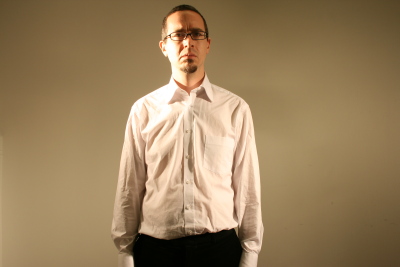

You did think you were dressed to the occasion, but then you realise that through your new white shirt everyone can see your nipples.
You might as well be standing there with no shirt at all.
I am working but it isn't. I've got no internet in my room and there are difficulties with putting images online. I like the room I'm working in, though. Only that there are too many chairs. This makes me feel lonely. But there is a ventilation system that makes a comforting humming sound.
.
9 to 5, January 15th

Costume 1: National Library
At the National Library, I cleaned books and music sheets (Mozart, mostly) using a vacuum cleaner. I was wearing a mask and latex gloves against the dust. I brought my own apron. When I told a friend about my job at the library, she told me to give my vacuum cleaner a name. I did not want to. I did not want to be personally involved with my work. I enjoyed going home not thinking about it. Yet I had written in my application how much I love books.

If you're paid by the hour take your time
For example: You're asked how long it will take you to finish a certain task. You think it will take three hours. Tell them you need five hours to finish it, be finished after four hours: you win one hour while still appearing to be a fast worker.
Dust
Score for a happening
Go to the music collection of your local library. Collect the dust from a book of or about a dead composer. Take the dust to a silent room. Spread it on the floor. Wait for the ghost/the music to appear.
Dust II
Score for a happening
At the library, find a book covered with dust. Take it out. Bring it back clean the next day.
Work
Score for a happening
Sit at your desk. Wait until it is covered with dust. Go back to work.
Work II
Score for a happening
Sit at your desk. Wait for the phone to ring. Wait for the phone to stop ringing.
9 to 5, January 16th
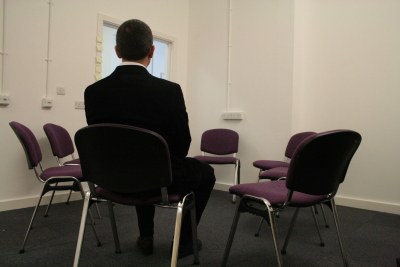
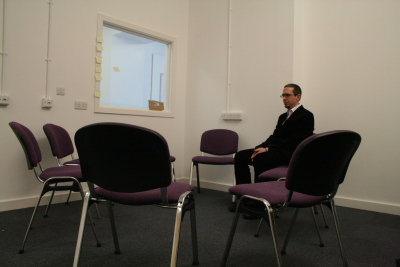
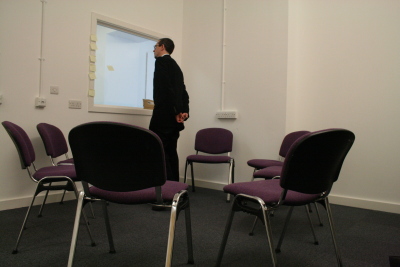
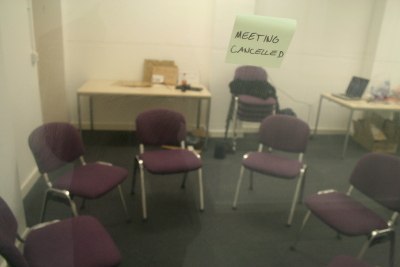
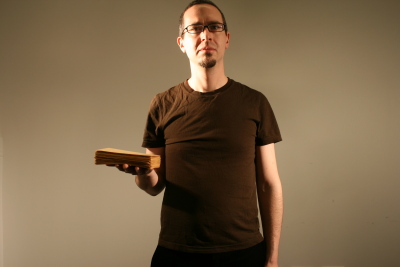

Costume II: Manpower - I was wearing everyday clothes
In 2004, I was commissioned by Manpower and the German Post to make a piece about human communication in a period of transformation, about missed opportunities and ephemerality. No: I was hired by Manpower to work for the Post in the dead letter department at Frankfurt Airport. I was hired for three weeks, but fired along with my co-workers after one week because we couldn't return the amount of letters a day that was required. We were told a number on the first day, I don't remember what it was, but we did never even get close. Most of the letters we had to return to their senders were either adressed to people that had died, or, less frequently but still quite often, to places that didn't exist anymore: Karl-Marx-Stadt, Karl-Marx-Universitaet.
9 to 5, January 17th



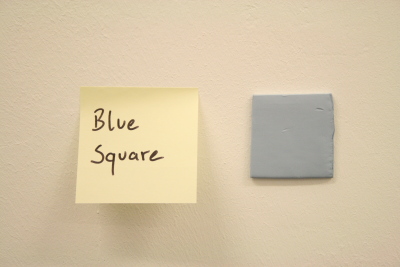
When I worked at Birthdays, we used Blu Tack a lot to put up signs and posters. On a quiet day, I would stand behind the counter and make little Blu Tack sculptures.

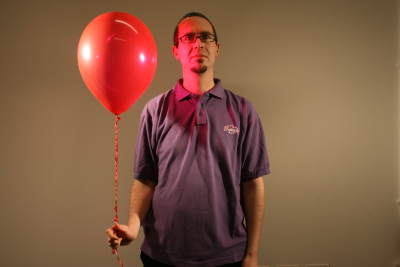
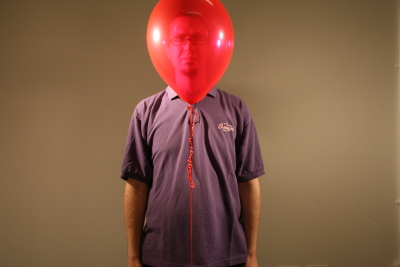

Costume III: Birthdays
I worked as a sales assistant at Birthdays for almost a year. I got paid minimum wage, had a contract for 16 hours a week but as there was usually a lack of staff I would often work twice as much. When I finally quit I was - apart from the manager - the person who had worked there longest.
Thinking about Birthdays now, what comes to mind are a number of anecdotes: about the blind man coming into the store now and again asking me to read poems from Anniversary cards to him till I got the suspicion he actually just liked being read love poetry to; about the woman who tried to steal the big Winnie-the-Pooh soft toy every now and then, but then was happy to just carry it around the store for a while; about having to wear a grave digger costume to work for Halloween. But that's not what it was about: when I was asked what had happened at work after a day at Birthdays, I would usually just say: nothing much.

When I worked at Birthdays, I usually started at nine but had to be there at quarter to to count up the tills. I wasn't getting paid for counting the money, though.
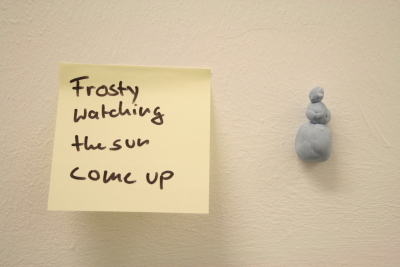
Christmas, Easter, Halloween, Valentine's Day ... the working year structured according to the holidays. Christmas music from end of November.
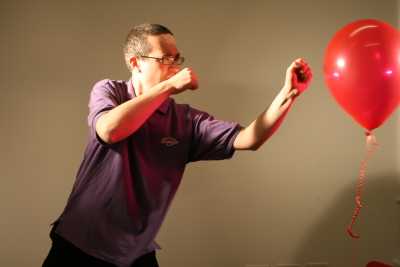
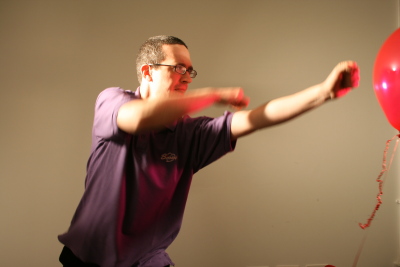

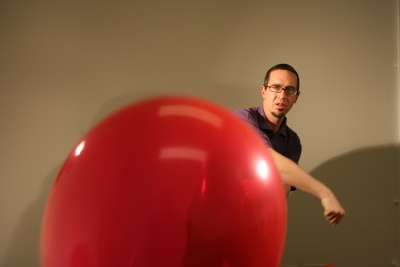
Some days I just didn't want to sell helium balloons anymore.
9 to 5, January 18th

Something I should have done yesterday
It is the last day. I should come up with something great to finish things off. But I'm tired. Maybe this would have been the most risky thing to do: nothing. It's not a strike. It's not a holiday. I'm still here, but it's over.


Daniel Ladnar, Swansea, January 14th - January 18th 2007
9 to 5 was presented as an installation at the MA Contemporary Dialogues Show Entrance and Exit, Swansea, June 2008, and as a lecture performance at Showroom Aberystwyth in June 2008, at emergency 08, greenroom, Manchester, September 2008, and at Supper Club, The Basement, Brighton, March 2010.